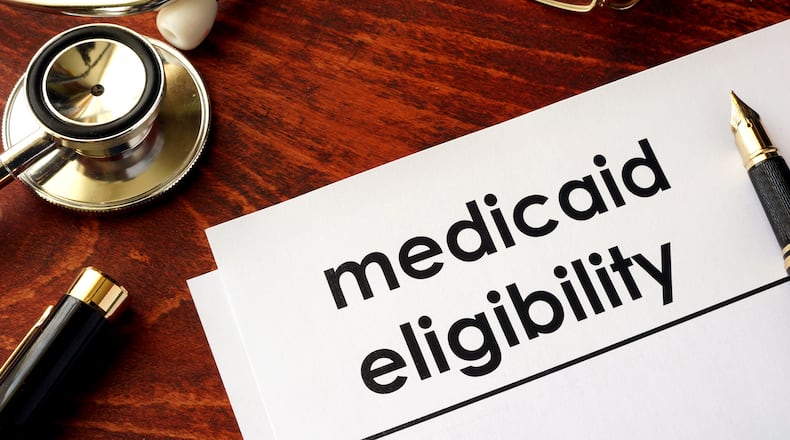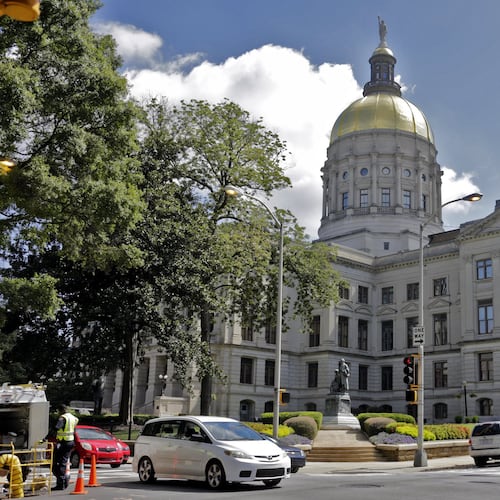“I wonder with Georgia’s refusal to adopt the expanded (Medicaid) program instituted during Obama’s presidency, am I getting any benefit from these taxes I paid? Where does this tax money go?”
– Asked by David
Hi David,
Credit: Mike Luckovich
Credit: Mike Luckovich
This is a question that affects every taxpaying Georgian. People who pay federal taxes help fund the Medicaid program, a national insurance program for some people with low income, financed jointly by the federal government and states.
In 2021, Medicaid covered four in 10 children and one in six working-age adults. Like local roads and parks, you pay for it whether or not you use it.
With the elections for the president and legislative offices just over a month away, few issues are looming as large on the campaign trail as health care and Medicaid is a big part of that in Georgia. Toward the end of summer, we asked AJC readers to share any and all questions they had on the topic, and they delivered.
This question concerns a specific type of Medicaid spending: the big bucket of federal tax money created in 2010 by Congress and President Obama to extend Medicaid health insurance to every poor adult in the U.S.
States have the choice to accept or reject that program, known as “Medicaid expansion.” Georgia has rejected it.
For states that accept Medicaid expansion, that means they’re insuring virtually all their poor adults under Medicaid. Each state will have to pay 10% of the cost of those medical bills, while the federal government picks up the other 90%.
One by one over the years, 40 states have signed on, citing the benefits to patients as well as to clinics and hospitals that otherwise would get stuck treating uninsured people in emergencies. Georgia leaders maintained their opposition, citing concerns that the cost to states might rise in the future if the feds stopped paying their share.
However, Georgia taxpayers still contribute to the federal treasury, so Georgia taxpayers are helping pay for all those other states’ Medicaid expansion costs. Nationwide, the federal Medicaid expansion funding was about $138 billion in 2022, according to the health research organization KFF. That tax money goes to pay for health care for people enrolled in Medicaid through the expansion — an estimated 21 million people in 2022.
On the bright side, Georgians are not paying the 10% state portion that an expansion here would cost. If Georgia were to fully expand Medicaid, then the state would help pay the medical bills of thousands of poor Georgia adults: 240,000 by the state’s count, and 290,000 by the count of some nonprofit groups.
Georgia does have its own, small state-designed Medicaid expansion program, known as Georgia Pathways to Coverage. Because it doesn’t cover all poor adults, Georgia taxpayers pay a bigger share of the medical costs for them than with full Medicaid expansion. The number of members and their health costs are small compared to the size of full Medicaid expansion — fewer than 5,000 enrollees at last count — though the unique program’s administrative costs per enrollee are heavier.
Have more questions?
Here’s a look at some of the questions we’ve already answered and the ones we hope to get to next! Don’t see your question listed? Submit one in the form below or email us at tellus@ajc.com .
About the Author
Keep Reading
The Latest
Featured




